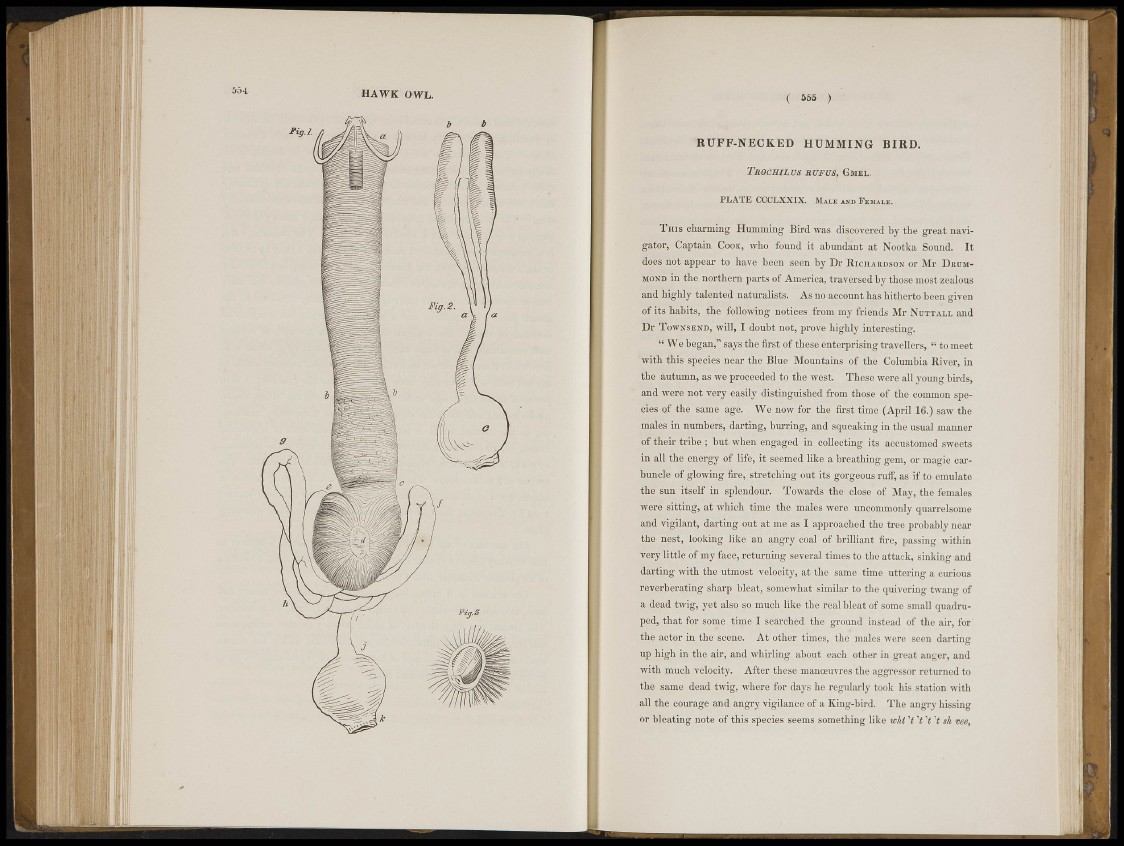
H AWK OWL. ( 555 )
R U F F - N E C K E D H U M M I N G B I R D .
TaocniLcs RUFUS, G M E L .
I ' I . A T K O C C I . X X I . X . MAL E AUD F EMAL E .
THIS charming Humming Bi rd was discovered by the great navigator,
Captain COOK, who found it abundant at Nootka Sound. I t
ao'es not appear to have been se«N by Dr R I C H A I U J S O X or Mr D K U M -
MO K U J I I the northern parts of! America, traversed by those most zealous
and highly talented naturalists. As t io account has hitherto been given
of its hablfs, the following notices from my friends Mr NDXTAIX. and
Dr T OWN S E Ì T D , will, I doubt not, prote highly interesting.
" We began, " .says the first of thes.e enterprising travellers, " to meet
with this s p è c i s t t e a r the Blue Mountains -of the Columbia River, in
the autumn, as we proceeded to the we s t The s e were all young birds,
and were not very easily distinguished from those of the common species
of the same age. We now for the first time (April 16.) saw the
males in number^,, darting, burring, and squeaking in the usual manner
of their tribe ; but when engaged in collecting its accustomed sweets
in all the energy 'of life, i t .seemed like a breathing gem, or magic carbunclteof
glowing fire, stretching out its gorgeous ruff, as if to emulate
the sun itself in splendour. Towards thè close of May, the females
were sitting, at which time the males were uncommonly quarrelsome
and vigilant, darting out at me as I; approached the tree probably near
the nest, looking like an angry coal of brilliant fire, passing within
very little of my face, returning several tiroes to the attack, sinking and
darting with the. utmos t velocity, at the same time uttering a curious
reverberating sharp bleat, somewhat similar to the quivering twang of
a dead twig, yet also so. much like thè real bleat of some small quadruped,
that for some t ime I searched the ground instead of the air, for'
the actor in the scene:.; At other times, the males were seen darting
up high in the air, and whirling; about ea^h other in great anger, and
with much velocity. Af ter these manoeuvres the aggressor returned to
the sa,me dead twig, where for days he regularly took his station with
all the courage and angry vigilance of a King-bird. The angry hissing
or bleat ing note of this species seems something like wht 't H ^ 'i sk vee,